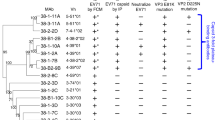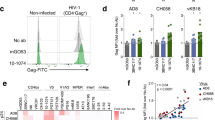Abstract
SPECIFIC antibody, passively transferred, has the capacity to inhibit the production of the specific immune response (reviewed in ref. 1), and may even terminate a response2. There have been several reports dealing with the ability of F(ab′)2 antibody (the antibody fragment which has the two antigen-binding sites but lacks the Fc fragment) to suppress the primary immune response (refs. 3–5, and F. J. Dixon, quoted in ref. 1). The specificity of this type of immunosuppression is best explained in terms of antigen–antibody binding so that the antigenic site is masked, and so it was not surprising that F(ab′)2 was found to induce antibody-mediated suppression of the immune response. In an initial attempt at preparing F(ab′)2 antibody, however, we found that all the suppressive activity in the F(ab′)2 preparation could be explained on the basis of contaminating whole 7S antibody. We report here the results of experiments in which the 5S F(ab′)2 antibody digested by pepsin and remaining undigested 7S antibody were separated on sucrose gradients and their activities in suppressing the primary antibody response tested separately.
This is a preview of subscription content, access via your institution
Access options
Subscribe to this journal
Receive 51 print issues and online access
$199.00 per year
only $3.90 per issue
Buy this article
- Purchase on Springer Link
- Instant access to full article PDF
Prices may be subject to local taxes which are calculated during checkout
Similar content being viewed by others
References
Uhr, J. W., and Moller, G., Adv. Immunol., 8, 81 (1968).
Wigzell, H., Cold Spring Harbor Symp. Quant. Biol., 32, 507 (1967).
Tao, T. W., and Uhr, J. W., Nature, 212, 208 (1966).
Rowley, D. A., and Fitch, F. W., in Regulation of the Antibody Response (edit. by Cinader, B.) (in the press).
Greenburg, C. L., and Moore, D. H., Nature, 219, 536 (1968).
Nisonoff, A., Wissler, F. C., Lipman, L. N., and Woernley, D. L., Arch. Biochem. Biophys., 89, 230 (1960).
Sinclair, N. R. StC., Immunology, 12, 549 (1967).
Sinclair, N. R. StC., and Elliott, E. V., Immunology, 15, 335 (1968).
Rockey, J. H., J. Exp. Med., 125, 249 (1967).
Fujio, H., and Karush, F., Biochemistry, 5, 1856 (1966).
Spiegelberg, H. L., and Weigle, W. O., J. Exp. Med., 121, 323 (1965).
Spiegelberg, H. L., and Weigle, W. O., J. Exp. Med., 123, 999 (1966).
Uhr, J. W., and Baumann, J. B., J. Exp. Med., 113, 935 (1961).
Brody, N. I., Walker, J. G., and Siskind, G. W., J. Exp. Med., 126, 81 (1967).
Author information
Authors and Affiliations
Rights and permissions
About this article
Cite this article
SINCLAIR, N., LEES, R. & ELLIOTT, E. Role of the Fc Fragment in the Regulation of the Primary Immune Response. Nature 220, 1048–1049 (1968). https://doi.org/10.1038/2201048a0
Received:
Revised:
Issue Date:
DOI: https://doi.org/10.1038/2201048a0
This article is cited by
-
IgG-mediated immune suppression in mice is epitope specific except during high epitope density conditions
Scientific Reports (2018)
-
Roles of Fc receptors in autoimmunity
Nature Reviews Immunology (2002)
Comments
By submitting a comment you agree to abide by our Terms and Community Guidelines. If you find something abusive or that does not comply with our terms or guidelines please flag it as inappropriate.



